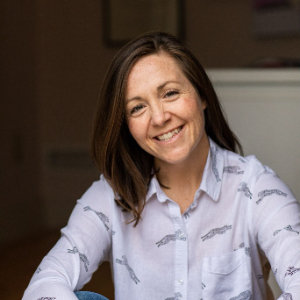
Antidotes for The Anxious Generation
If you have or work with children and haven’t read or listened to Johnathan Haidt’s book, The Anxious Generation, I highly recommend this read. As I navigate parenting, and work to continually enhance Kind Mind’s program to mitigate the growing mental and emotional health concerns of children today, this book resonated on so many levels. As I read, it reminded me of the movie Wall-E (2008), and wow was that forward-thinking. It offered an extreme prediction of the impact technology has on humanity. After reading this book and simply walking through a city street, this prediction isn’t so far-fetched. People everywhere with their heads down, engrossed in a smartphone. This month we explore antidotes for this growing problem and think ahead with hope.
Antidotes for The Anxious Generation
When I started to develop Kind Mind, the motivation came from what I felt I lacked in my childhood…things like; emotional nurturing, feeling seen, heard, and valued for who I am in my soul, and learning self-confidence rather than pleasing others. I wanted to share simple, yet powerful practices that would help children feel that connection within themselves.
As the world evolves and the concerns for children's mental health grows in new ways, I realize that this work (Kind Mind) will always be an antidote, no matter what each generation is facing. When we have self-awareness, self-love, social connectedness, and compassion for ourselves and one another, we will live resilient lives. We will have the strength and tools to meet life's challenges. This is my hope, and contribution for the future.
To offer a brief synopsis of this compelling book, the author discusses the impact of technology, smartphones in particular, on Gen Z. He refers to it as "the great re-wiring" and correlates the increase in anxiety and depression in this generation of children using smartphones. He unpacks decades of research on child mental health and compares it to noteworthy world events (war, climate change, etc.), as well as societal norms during various generations (unsupervised play, tv, smartphone and technology use, etc.). Through this deep dive, he makes an unwavering case for the lack of healthy brain development in Gen Z due to smartphone use. It paints a pretty stark picture of how a few companies have, and continue to take advantage of an already oppressed group of people…our children.
The book also talks about solutions. As I got to the solutions part of the book, I realized how Kind Mind's practices and teachings are a direct antidote for the anxious generation. We have seen this in our research over the past three years, but after reading this book I am even more confident that Kind Mind provides children with what they need to support healthy change.
“Neuroplasticity refers to your brain's ability to absorb information and evolve to manage new challenges. It's a natural gift that allows you to develop as a person and take on the ever-changing tasks of daily life.” - The Cleveland Clinic
While Johnathan Haidt does not recommend adding more social-emotional learning curriculum that teaches empathy and emotions, he invites room for more free play, time outdoors, and phone-free schools.
While I agree very much with this approach and have been offering school systems structured ways to make time for free play and getting outdoors (we focus on awe-inspiring experiences, as one example), I also can't ignore previous research that points to suppressed emotions as children leading to anxiety and depression in adulthood.
Free play is essential, and my childhood was full of it! Yet I still grew up anxious and depressed, with constant feelings of inadequacy. I strongly believe that while SEL curriculum (in standard terms) is not the answer, PRACTICED-based SEL learning is what will help children embody the skills and confidence they need to navigate social and interpersonal challenges with resilience. It is a combination of the two and I am living proof of that.
Kind Mind focuses on practice-based, compassion-focused, social-emotional learning. For example, rather than simply teaching a lesson about compassion, we engage students and teachers in short, daily practices and visual cues that become part of the routine. In a few minutes a day, students and teachers use evidence-based practice tools that result in embodied compassion, a sense of belonging, a regulated nervous system, and resilience.
Kind Mind is on a mission to be a part of the solution now, and we have great hope! It is our responsibility as adults to make choices that we know will support our children. We need to prioritize this work over academics, test scores, extracurricular activities, and over-scheduled lives. We need to prioritize our children's needs, they are most vulnerable and they need us to take charge and guide the way.
This week, take a look at the Anxious Generation website (if you can, read or listen to the book!). Take the first step by noticing your smartphone use and taking one small step towards less use and more present-moment connection.
BONUS: Change your phone to grayscale. I did it a month ago and it has cut my screen time down by over 50%.


